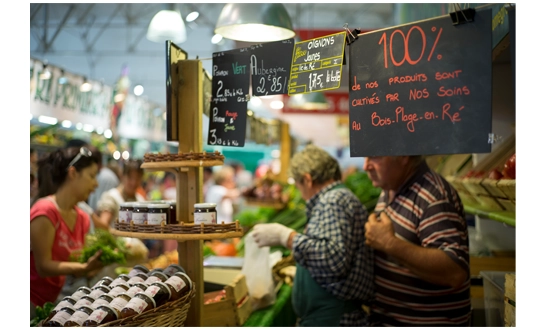Actors and tools for observing territorialized food systems in France

As pressures on food systems intensify, alternative practices are developing in reaction to the dominant model, proposing to reconnect producers and consumers. The reterritorialization of food is said to bring social, environmental, economic, health or democratic benefits (social bonds, virtuous agricultural practices, income diversification, low-processed products, transparency), making food consumption more sustainable overall. But these impacts have yet to be assessed and quantified. This is why the PLAT4TERFOOD¹ project aims to gather data and methods to characterize and understand the impacts of territorialized food systems (TFS).
As part of this project, we have carried out an inventory of observatories already involved in the study of TFS, as well as the data sources they use. This inventory has been achieved between September 2023 and May 2024. For this research, we considered more generally observatories that deal with agriculture and food regarded as local, sustainable or healthy. The data sources reported here are those publicly mentioned by the observatory (on the website, in the reports, etc).
The dataset contains three linked tables: an Observatories table, a Datasets table, which lists the data sources used by the observatories, and an Actors table, which lists all the actors associated with the observatories and/or data sources.
Among the information contained in the tables, you can find the geographical scope of the observatories and data sources, the type of professional (producer, processor, etc.) or production, as well as their time period, their update frequency and their access mode (license, download, etc.). You can also find out about the different productions of the observatories and the ways in which they make information available (primary data production, reports, interfaces, etc.), or whether data sources are participatory or not.
This dataset provides an overview of TFS observation in France, its resources and actors involved. It is also giving an overview of the ways in which information is made available by the various observatories, and in particular whether they formalize it (reports) or make it accessible in its raw form (accessible or downloadable data). This dataset offers perspectives on open-data on local and sustainable agrifood systems, by identifying which data sources exist and can be used, for the general public as well as for research or for carrying out various studies.
¹ The PLAT4TERFOOD project is supported by a French governmental grant managed by the National Research Agency in the context of the France 2030 recovery plan (ANR-2023-PESA-0005).
